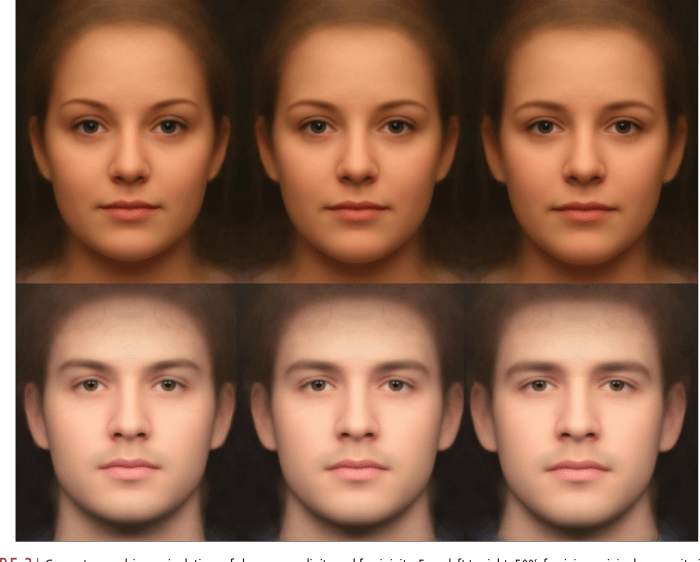Digilife global technology trends 2025 set the stage for this enthralling narrative, offering readers a glimpse into a story that is rich in detail and brimming with originality. As we delve into the advancements that lie ahead, the landscape of technology unfolds with exciting possibilities and challenges.
The journey ahead promises to reshape industries, redefine daily life, and push the boundaries of innovation beyond our current imagination.
Overview of Digilife Global Technology Trends 2025
Digilife Global Technology Trends 2025 provides insights into the upcoming technological advancements that will shape the world in the near future. It offers a glimpse into the innovations and changes that we can expect to see across various sectors.
Understanding these trends is crucial for businesses and individuals alike as it allows them to anticipate the evolving landscape and adapt their strategies accordingly. By staying informed about the latest technologies, companies can stay competitive and harness new opportunities for growth.
Likewise, individuals can prepare themselves for the skills and knowledge required in the digital age.
Key Sectors Influenced by Technology Trends
- Artificial Intelligence (AI): AI will continue to revolutionize industries such as healthcare, finance, and transportation by enabling automation, predictive analytics, and personalized services.
- Internet of Things (IoT): The IoT will connect devices and systems, creating smart homes, cities, and industries that enhance efficiency, convenience, and sustainability.
- Cybersecurity: With the increasing reliance on digital systems, cybersecurity will be paramount to protect data, privacy, and infrastructure from cyber threats.
- Augmented Reality (AR) and Virtual Reality (VR): AR and VR technologies will transform entertainment, education, and training experiences by creating immersive and interactive environments.
- Blockchain: Blockchain technology will revolutionize sectors like finance, supply chain, and healthcare by providing secure and transparent transactions and data management.
Artificial Intelligence (AI) Trends
Artificial Intelligence (AI) is set to undergo significant advancements by 2025, revolutionizing various industries and reshaping the way we interact with technology. The integration of AI into different sectors is expected to bring about increased efficiency, accuracy, and innovation.
Anticipated Advancements in AI Technology by 2025
- Enhanced Natural Language Processing: AI systems will have the ability to understand and generate human language more accurately, enabling seamless communication between humans and machines.
- Advanced Machine Learning Algorithms: AI algorithms will become more sophisticated, allowing for better predictions, decision-making, and personalized user experiences.
- Improved Computer Vision: AI-powered computer vision technology will enable machines to interpret and analyze visual information with greater precision, leading to advancements in areas such as autonomous vehicles and medical imaging.
- AI Automation: AI will play a crucial role in automating repetitive tasks, increasing productivity, and freeing up human resources to focus on more strategic initiatives.
Comparison of Current AI Applications with Expected Advancements in 2025
- In Healthcare: Current AI applications in healthcare include medical image analysis, personalized treatment recommendations, and predictive analytics. By 2025, AI is projected to revolutionize healthcare with advancements in diagnosis accuracy, drug discovery, and personalized medicine.
- In Finance: Present AI applications in finance involve fraud detection, algorithmic trading, and customer service chatbots. By 2025, AI is expected to transform the financial sector through enhanced risk management, automated financial advice, and predictive analytics for investment decisions.
- In Transportation: Current AI applications in transportation focus on route optimization, autonomous vehicles, and predictive maintenance. By 2025, AI is poised to revolutionize transportation with advancements in traffic management, autonomous drones, and smart infrastructure for connected vehicles.
Internet of Things (IoT) Developments
The Internet of Things (IoT) has been rapidly evolving, connecting everyday devices to the internet and enabling them to communicate with each other. By 2025, IoT is expected to revolutionize various aspects of our lives, from smart homes to entire smart cities.
Evolution of IoT Devices and Applications
IoT devices have become more sophisticated and interconnected over the years. From smart thermostats and wearable fitness trackers to connected kitchen appliances and security systems, the range of IoT devices continues to expand. By 2025, we can expect even more advanced IoT devices that seamlessly integrate into our daily routines, offering convenience and efficiency like never before.
Revolutionizing Smart Homes and Cities
In smart homes, IoT technology will enable homeowners to control their appliances, lighting, security systems, and even air conditioning remotely through their smartphones or voice commands. By 2025, smart homes will be able to anticipate occupants' needs, adjust settings automatically, and enhance energy efficiency, leading to a more comfortable and sustainable living environment.On a larger scale, IoT will transform entire cities into smart cities by 2025.
Smart traffic management systems will optimize traffic flow and reduce congestion, smart waste management will improve efficiency and sustainability, and IoT-enabled public safety initiatives will enhance security and emergency response capabilities. These advancements will not only improve the quality of life for residents but also contribute to a more sustainable and interconnected urban environment.
Challenges of Widespread Adoption of IoT Technologies
Despite the numerous benefits of IoT, there are challenges associated with its widespread adoption. One major concern is data privacy and security, as the vast amount of data generated by IoT devices can be vulnerable to cyber attacks if not properly secured.
Additionally, interoperability issues between different IoT devices and platforms can hinder seamless integration and communication.As IoT continues to grow and expand, addressing these challenges will be crucial to ensure the safe and effective deployment of IoT technologies in our homes, cities, and beyond.
Cybersecurity Trends
Cybersecurity is set to become even more crucial as we move towards 2025, with the increasing use of technology in our daily lives. It is essential to understand the projected cybersecurity threats and solutions to protect sensitive data and secure digital assets.
Projected Cybersecurity Threats
- Increased sophistication of cyber attacks, such as ransomware and phishing scams, targeting individuals and organizations.
- Growth of IoT devices leading to more entry points for hackers to exploit vulnerabilities.
- Rise in insider threats from employees or third-party vendors with access to sensitive information.
Importance of Cybersecurity Measures
Cybersecurity measures play a vital role in safeguarding confidential data, financial transactions, and critical infrastructure. With the advancement of technology, it is imperative for businesses and individuals to invest in robust cybersecurity solutions to prevent data breaches and cyber attacks.
Role of AI and Machine Learning in Cybersecurity
AI and machine learning technologies are being increasingly utilized to enhance cybersecurity defense mechanisms. They can analyze vast amounts of data in real-time to detect anomalies, identify potential threats, and respond proactively to cyber attacks. By leveraging AI-driven solutions, organizations can stay ahead of evolving cyber threats and protect their digital assets effectively.
Epilogue
In conclusion, the landscape of technology in 2025 is a dynamic tapestry of progress and change. As we navigate these trends, it becomes clear that the future is not just a destination but a continuous journey of discovery and transformation.
Embracing these advancements will shape our world in ways we have yet to fully comprehend.
FAQ Insights
What are the key sectors influenced by Digilife Global Technology Trends 2025?
Key sectors include healthcare, finance, transportation, and more.
How will AI impact various industries by 2025?
AI is expected to revolutionize industries like healthcare, finance, and transportation with advanced applications.
What challenges are associated with widespread IoT adoption by 2025?
Challenges may include security risks, privacy concerns, and interoperability issues.
How important is cybersecurity in the face of advancing technology by 2025?
Cybersecurity is crucial to protect against projected threats and ensure safe technology integration.
What role do AI and machine learning play in enhancing cybersecurity defense mechanisms?
AI and machine learning can improve cybersecurity by identifying threats, predicting vulnerabilities, and automating responses.







